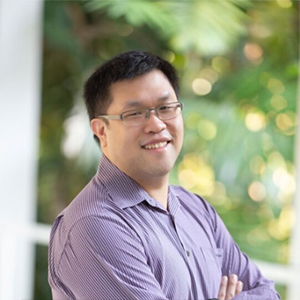
Chaiyun Sakulsriprasert
Dr Chaiyun Sakulsripraert is a licensed clinical psychologist and an assistant professor in the Department of Psychology at Chiang Mai University, Thailand. He is currently the first and only Advanced Certified Schema Therapist and Supervisor (Individuals) in Thailand. As a clinician, he works with university students who experience various psychological problems, particularly chronic depression and personality disorders. In his academic role, he instructs undergraduate and graduate students in counselling and psychotherapy. Additionally, he conducts research in the field of schema therapy and related areas.
How does culture shape the way we define what is healthy in schema therapy?
Co-presented with Michelle Neo, Edward Chan, John Louis, Beatrice Ng-Kessler, Duygu Yakin
The majority of schema therapy research is rooted in Western contexts, resulting in clinical samples that are largely representative of Western populations. In the Delphi consensus study, Pilkington and colleagues (2022) identified the important gaps in research on the schema therapy model with two areas of concern relating to the need to expand research to “people who are from racial and ethnic minorities” and “adapting schema therapy to different cultures.” Currently, there are few papers that have examined schema therapy within Asian populations, however, the existing findings do reflect the universality of both positive and negative schemas when compared across different cultures (Louis et al., 2018) and that with cultural modifications (whilst preserving the integrity of the schema model) it is an appropriate therapy for Asian clients (Mao et al., 2022). Unfortunately, the investigation of schema therapy across Asian demographics remains limited due to challenges such as difficulty in participant recruitment, resource constraints, complexities in the translation of schema terminology, and a shortage of trained schema therapists in the Asian region. This Round Table will tie into the conference theme “How Schema Therapy Empowers Healthy Modes” by exploring the question “How does culture shape the way we define what is healthy in schema therapy?” with an emphasis on the exploration of what healthy schemas and modes can look like in Asian populations (versus non-Asian/Western populations). Our discussion will explore the intersection of schema therapy principles and Asian cultural values including how the definition of “healthy” may present differently in a Western vs. Eastern context, how schemas and modes may present differently across cultures, the potential issues that may arise when culture is not factored in schema formulation and how certain cultural concepts (e.g. filial piety) may pose challenges for shifting coping modes (e.g. compliant surrenderer). Each of our panellists will share their unique thoughts and experiences in their application of schema therapy within Asian populations across both research and clinical settings. References Louis, J. P., Wood, A. M., Lockwood, G., Ho, M. H. R., & Ferguson, E. (2018). Positive clinical psychology and Schema Therapy (ST): The development of the Young Positive Schema Questionnaire (YPSQ) to complement the Young Schema Questionnaire 3 Short Form (YSQ-S3). Psychological Assessment, 30(9), 1199-1213. Mao, A., Brockman, R., Neo, H. L. M., Siu, S. H. C., Liu, X., & Rhodes, P. (2022). A qualitative inquiry into the acceptability of schema therapy in Hong Kong and Singapore: implications for cultural responsiveness in the practice of schema therapy. Clinical Psychologist, 26(3), 341-350. Pilkington, P. D., Younan, R., & Karantzas, G. C. (2023). Identifying the research priorities for schema therapy: A Delphi consensus study. Clinical Psychology & Psychotherapy, 30(2), 344–356.

